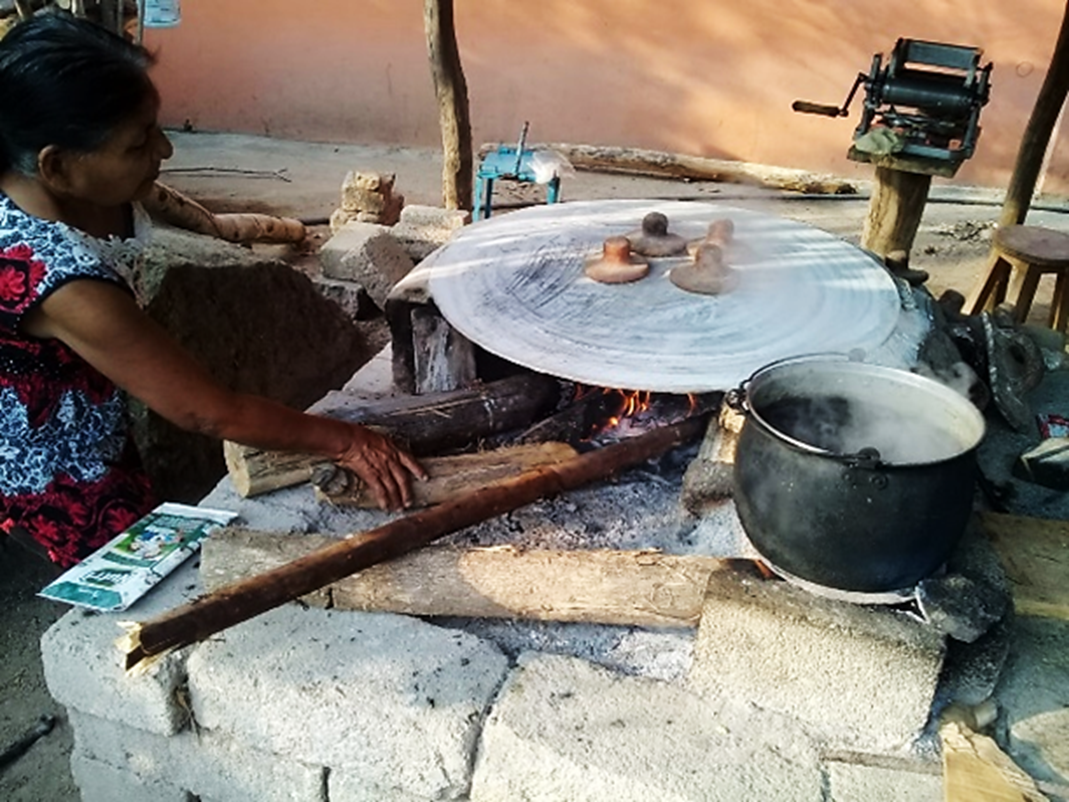El totopo mexicano: descubriendo su nombre" (Mexican totopo: discovering its Name) / 5 minutes of Spanish + Podcast- English version
Good
morning, good afternoon or good evening depending on where you are or what time
you are listening to us.
Thank
you very much for being here participating in this podcast about Spanish, a
language that we love and that today summons us.
And
today is the fourth podcast of the year 2024...we are in the 181st edition of 5
minutes of Spanish.
Fourth
podcast of the year, time goes by, I say this to be original and what is
today's topic?
Today
we are going to talk about a very common word in Mexico, it is the name of a
food, something that, if you come to Mexico, you eat as soon as you sit down at
a table.
Food,
food... Mexican, I know, very easy, the corn tortilla, the basis of the food of
the native peoples in the region.
"Tibio,
tibio" (warm) you're close, but it's not exactly the corn tortilla.
The
tequila, … the epazote, ... the chile, ... I don't know. Me “doy por vencido”
(I give up)
You
give up? Let's talk about totopo.
The
totopo is made with corn tortilla.... and it is true, it is one of the first
things you eat in Mexico as soon as you enter a taqueria or a Mexican
restaurant.
The
word totopo comes from the Nahuatl word totopochtli which means to brown or to
toast. A totopopo or totoposte is a tortilla cut into triangles, made with
yellow or white corn that is toasted until crispy.
Pre-Hispanic
peoples prepared corn tortillas and toasted them on clay disks, the comales.
These totopos were eaten with tomato and chili sauce. Almost the same as today.
The
totopos were also the food of the warriors, when they had to go to war, mothers
and wives prepared a meal for the long journey. One of the most common meals
were totpochtli (totopos) and chilatlqulitl (chilaquiles).
You
know them, right? It makes sense, they are easy to carry and they keep. The
totopos were not fried but toasted and often baked in clay ovens, with a
dehydration process.
In
other words, dehydrated they lasted longer. Currently, there are some totopos
in Oaxaca with this process. The women who make them are called “totoperas”.
They
often suffer from rheumatism for being in the eternal ovens, that is to say,
they never turn off and they go from cold to heat...hard work.
And
to drink? Pulque?
Yes,
pulque and when they were very tired they cut maguey leaves and drank its
juice, with that they recovered their energy.
A
little bit of vocabulary;
Totopo
- totopo or chip or nacho.
Horno
- oven
Hornos
eternos - eternal ovens - ovens always on
Nunca
se apagan- never turn off
Deshidratar- Dehydrate-
Pulque-
fermented drink.
Are
nachos also Mexican? Why are they called nachos?
Yes,
they are Mexican, the story goes that, in the city of Piedras Negras, Coahuila,
Mexico, in a small restaurant called El Moderno, several U.S. military wives
arrived after the restaurant had closed.
The waiter, Ignacio Anaya, ingeniously prepared a dish for them with
what little he had available: tortilla chips and cheese. The ladies loved it
and asked what the dish was called.
Of
course, the waiter said nachos, his name was Ignacio and Ignacio's nickname is
Nacho. He named the dish after himself
And
he became famous
And
speaking of food, you can visit us in San Jose del Cabo and participate in a
cooking and Spanish class.
Or
better yet, live a true immersion by sleeping in the new apartment next to the
school and eating with the teachers.
You
will eat lots of delicious totopos at the snacks, appetizers with guacamole,
beans or salsa and many, many other meals…
Thank
you very much for making it this far in the Podcast. And thank you for
listening, participating, commenting. Spanish in Cabo and SpanishUp2U would not
be the same without you. We want you to speak and think in Spanish, that's
our mission.
Thank
you for allowing us to do this work that we love.
And,
if you liked this podcast, please share it.
See
you in the workshops, in the classes, 24/7 on SpanishUp2U, in the Thursday
workshop on Zoom, or listen to us next Wednesday.
See
you soon.
Bye-bye.


Comentarios
Publicar un comentario